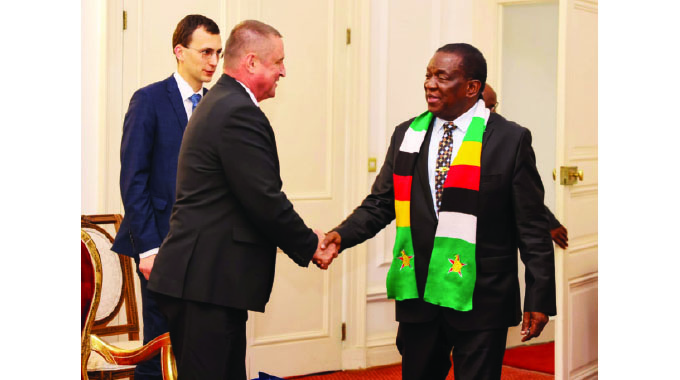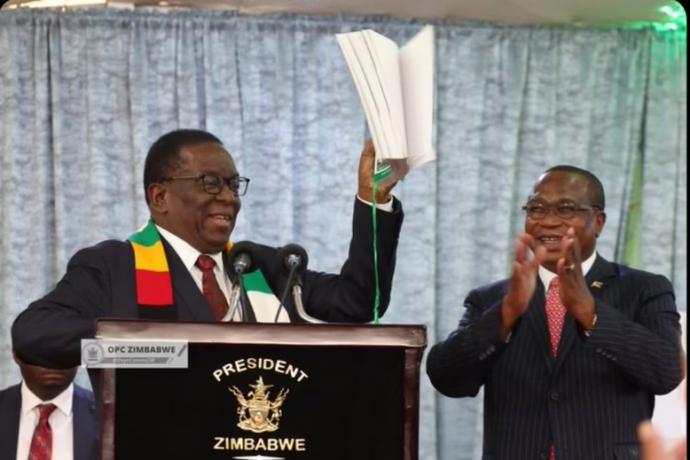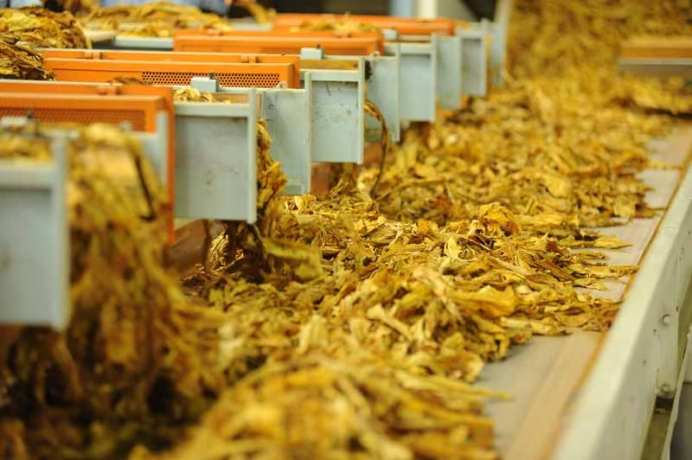
ZIMBABWE and Belarus, two countries that are suffering under the yoke of illegal Western economic sanctions, have joined hands to remove the obstacles spawned by the punitive measures and uplift their citizens from poverty to prosperity.
This is manifested through increased trade between the two countries, particularly in the field of agriculture where Belarus has so far supplied more than 2 000 agricultural equipment with more than 3 500 tractors on their way.
Such synergies have in a very short timeframe propelled Zimbabwe to achieve food security that has reduced the country’s import bill.
Yesterday, a Belarusian delegation led by Deputy Prime Minister Mr Leonid Zayats met President Mnangagwa at State House in Harare as they took the necessary steps to implement and operationalise a host of agreements that were signed during a State visit by their leader, President Aleksandr Lukashenko in February.
“I would like to sincerely thank the President of Zimbabwe for the hospitality he provided to the Belarus delegation. We have strong relations thanks to the will of the two Presidents, the President of Belarus and the President of Zimbabwe. We are fulfilling the agreements which the two Presidents reached. Our working group, comprising of the Deputy Minister of Industry, Deputy Minister of Agriculture and heads of departments, is in Zimbabwe,” said Mr Zayats.
Soon Zimbabwe will be a major supplier of baby food including dairy products and poultry thanks to an MOU that was reached during the State visit.
Apart from that, the country’s mechanisation and modernisation programme continues with 3 500 tractors for small to medium scale farmers soon to arrive.
“We are also providing small-scale farmers with tractors, auxiliary equipment and trailers. We have provided Zimbabwe with more than 2 000 agriculture equipment, and we are planning to supply you with 3 500 tractors in the near future. We are also going to provide grain driers and storage facilities, a lot of equipment will come from our industrial enterprises,” Mr Zayats said.
Such co-operation comes in handy as both Zimbabwe and Belarus have to look not only inwardly but to friendly countries if they are to successfully beat back the negative effects of the illegal economic sanctions.
“Both Zimbabwe and Belarus are struggling with sanctions, we need to work with each other to combat these sanctions so that they do not put obstacles in our development. We have technology and knowledge we can share, we need to complement each other so that the people of our two countries can prosper,” said Mr Zayats.
Businesses in Zimbabwe and Belarus are set to benefit from strengthened co-operation following the commitment by the Governments of the two countries to facilitate engagements in the private sector.
The delegation visited parastatals such as Dairibord Zimbabwe, Nestle Zimbabwe and the Pig Industry Board (PIB) to have an appreciation of how these entities operate.
Belarus has committed to bringing technology to produce milk products out of milk powder in Zimbabwe.
Mr Zayats said they are committed to working closely with the Zimbabwean Government to improve food production.
“We want to make sure we can work together; we have enough resources in agriculture to produce enough food. Our country has high-end technology in agriculture. We are happy that Zimbabwe has hosted us so that we work on this immediately.
“We are here to make sure we bring technologies to produce milk products out of milk powder so that we can use it here in Zimbabwe. Ice-cream and other by-products can be produced here in Zimbabwe out of milk powder. We are planning to supply raw milk here in Zimbabwe and to help the farmers who are in milk production by introducing our Belarus technologies. This will help raise the production volumes,” he said.
Mr Zayats said they also want to provide technologies in packaging of food for children and establish meat produce factories to make sure that high quality meat is produced.
He said it is critical to implement what the two Presidents agreed on adding that the visit will be fruitful.
The Deputy Minister of Lands, Agriculture, Fisheries, Water and Rural Resettlement, Vangelis Haritatos, said there is a lot of co-operation between the two countries adding that this is because of President’s Mnangagwa’s engagement and re-engagement efforts.
“As the Second Republic we break records by bringing in very important people who are keen to improve our country. We are seeing increased agricultural co-operation between these two countries. We are looking forward to enjoying the technologies in Zimbabwe, they have good technologies. We also want to learn from them on a technology based approach. We also expect some form of co-operation so that we increase food production for the betterment of the country,” he said.
Dep Minister Haritatos applauded Nestle Zimbabwe and Dairibord for their work in promoting the growth of the industry adding that their Belarusian counterparts will help in the dairy value chain using their superior technologies to produce enough milk that will meet demand.
Herald




